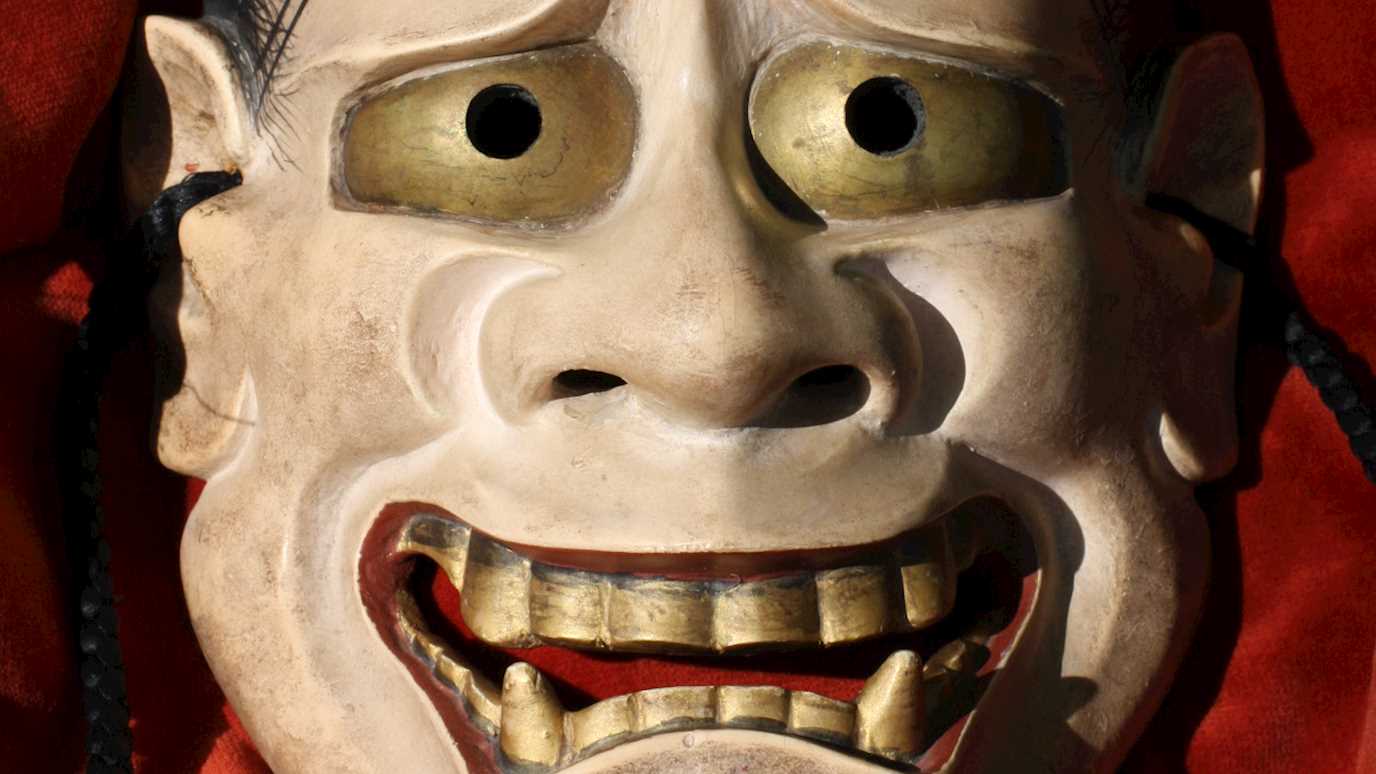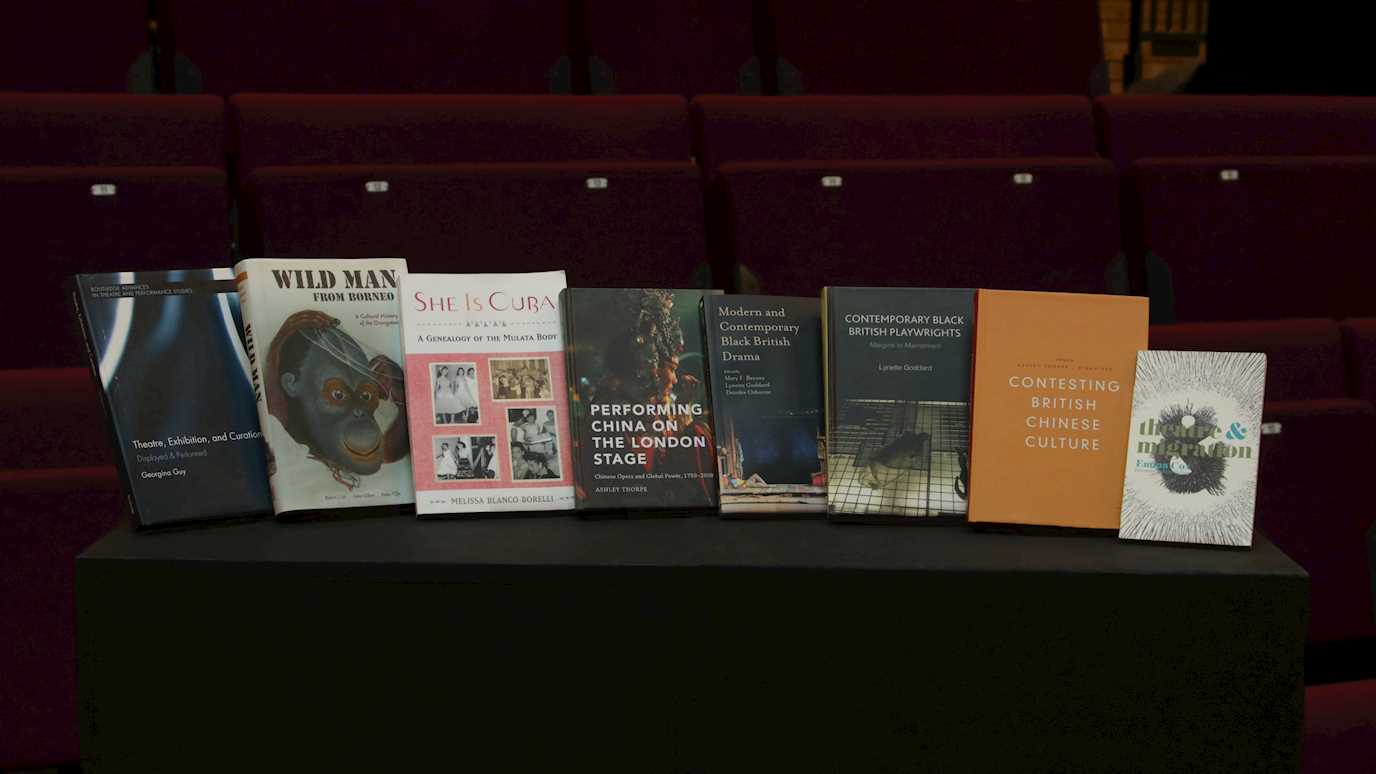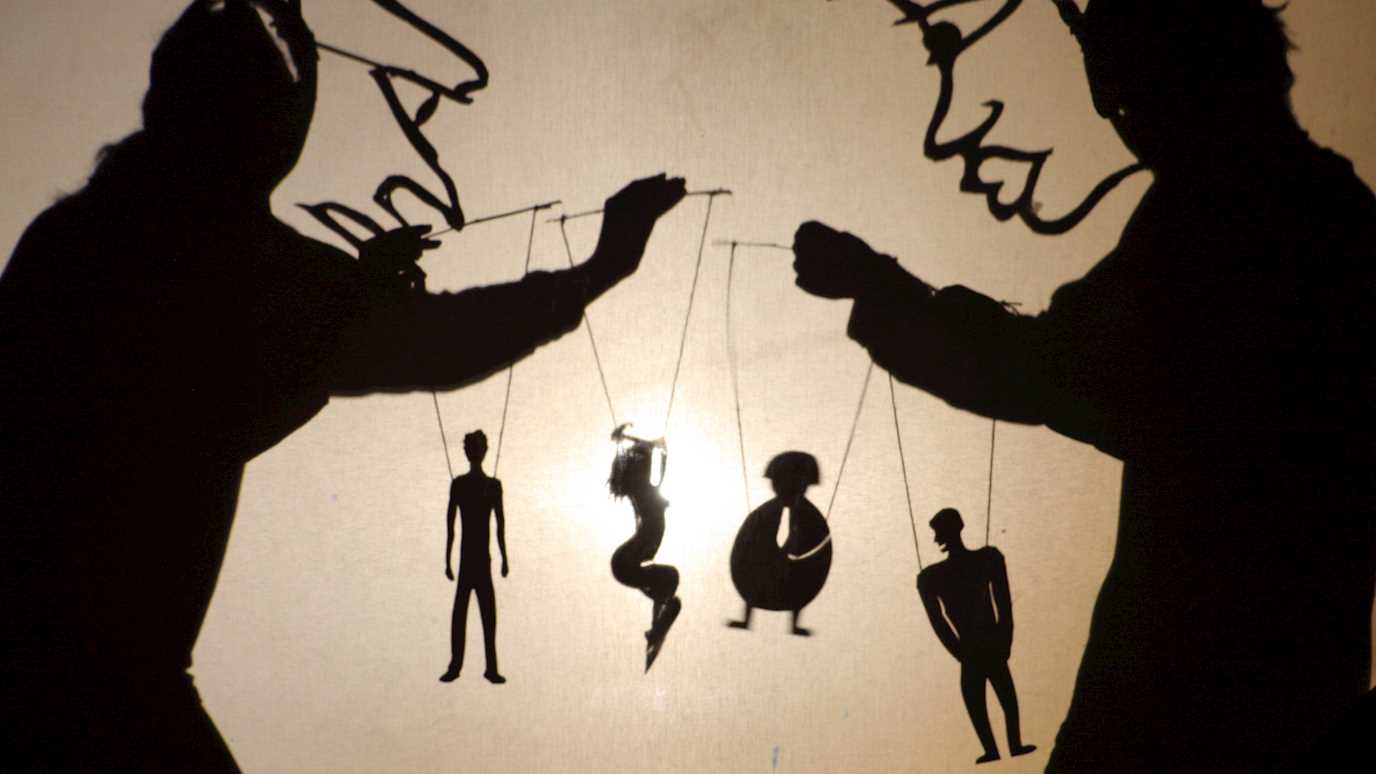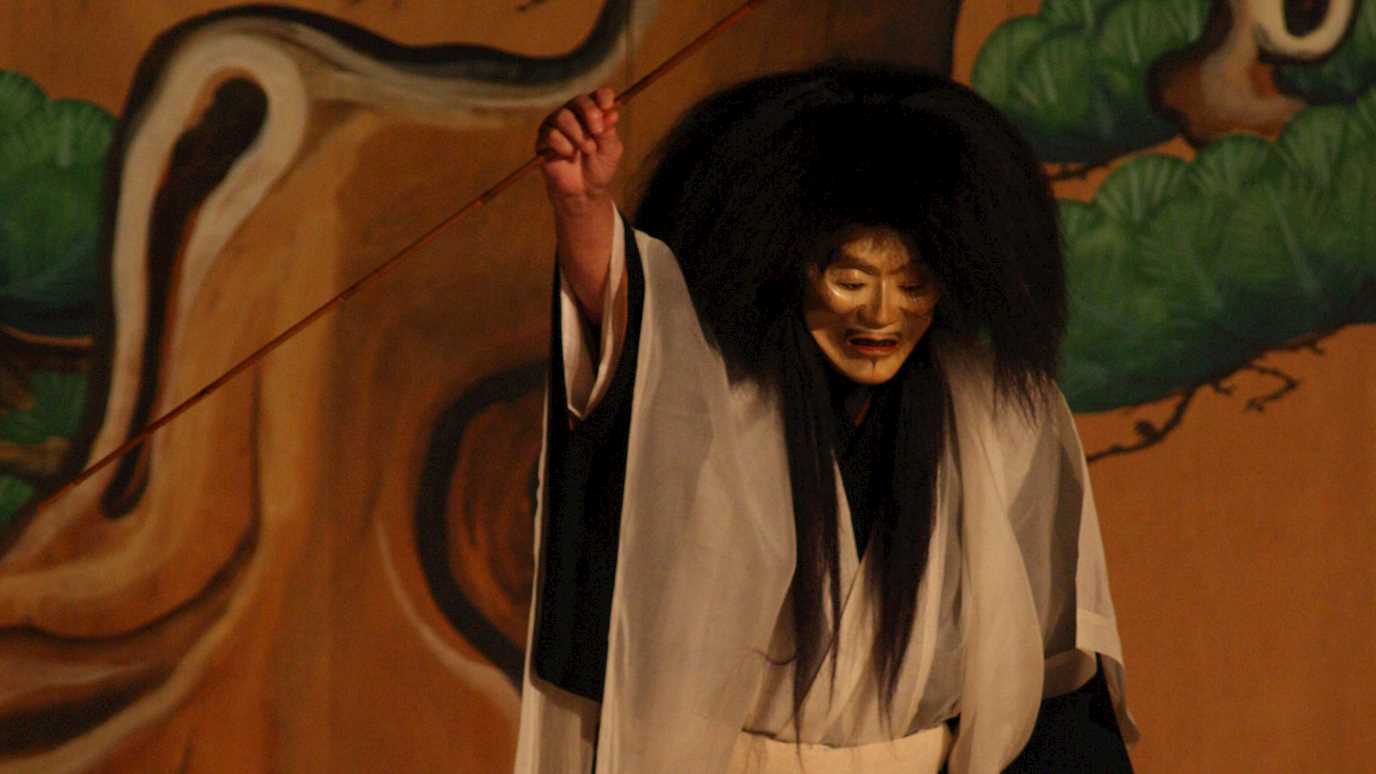Our research explores the practices and politics of contemporary creativity, performance and playwriting via a mix of critical and practice-based approaches.
This includes studies of dance, performance cultures, performer training and play analysis, as well as practice-based work in playwriting, directing, devising. The Centre for Contemporary British Theatre was established in 2017 to consolidate Drama’s research in these areas and to connect with practitioners and the wider discipline.
Research and Researchers
Researchers
Lynette Goddard's research is focused on the politics of contemporary Black British theatre and performance, including work on new writing by Black playwrights, histories of Black directors in Britain, issues of race and representation, and contemporary Black productions of canonical plays.
Dick McCaw's research lies in the movement training of performers: this expands into a wider interest in how we learn and teach movement and how we observe and analyse human behaviour.
Rebecca McCutcheon is a director and practice-led researcher, working across site-based practice, feminist performance and feminist theatre history.
Chris Megson's research investigates theatre and politics within a broadly philosophical framework, focusing on post-war and contemporary British theatre, new playwriting, and global theatres of the real.
Katie Mitchell is a world-leading theatre director who has directed over 100 productions in the UK and Europe over a 30 year career.
Sophie Nield works on questions of space, theatricality and representation in political life and the law, and on the performance of ‘borders’ of various kinds.
Dan Rebellato's research focuses on post-war and contemporary British theatre in critical writing and playwriting practice.
Libby Worth's research centres on the multiple relationships between dance and theatre texts with a focus on the many ways that movement engages with and can expand texts, whether these are scores for performance or written plays.
Current Research
Lynette Goddard is researching Black British Theatre Directors’ Processes and Productions with a focus on Paulette Randall and debates about access, inclusion, race and intersectionality. They are also writing about how race is portrayed and interrogated in contemporary plays through such themes as Black men and the police, race, immigration and asylum, race and religion, race and sport, and race and the rise of right-wing politicians.
Dick McCaw is working on a project about the career of Rudolf Laban, drawing from documents in the Brotherton Library.
Chris Megson is researching a monograph on contemporary British theatre and religion and co-editing a book on Theatre and Censorship in Europe.
Katie Mitchell is currently a resident artist at the Royal Court Theatre (London), the Schaubühne (Berlin) and the Deutsches Schauspielhaus (Hamburg). Her recent productions include Orlando (2019-20).
Dan Rebellato is working on a large-scale interdisciplinary monograph exploring the emergence of Naturalist theatre in the last third of the nineteenth century. He is also co-editing The Cambridge Companion to Contemporary British Playwrights, The Cambridge Companion to British Theatre Since 1945, and Contemporary European Theatre Directors (2nd Edition).
Creative Practice
Rebecca McCutcheon | Town Hall by Caridad Svich for Camden People’s Theatre Calm Down Dear feminist theatre festival 2019 and tour.
Katie Mitchell | Happy Days Samuel Beckett (Deutsches Schauspielhaus, Hamburg, 2015); Ophelias Zimmer (Schaubühne am Lehniner Platz, Berlin/Royal Court, 2015); Cleansed (National Theatre, London: Dorfman, 2016); Schatten (Eurydike Sagt) (Schaubühne am Lehniner Platz, Berlin, 2016); The Maids Genet (The Toneelgroep, Stadsschouwburg Amsterdam / Avignon Festival, 2016); Lucia di Lammermoor Gaetano Donizetti (Royal Opera House, London, 2016); 4.48 Psychosis (Deutsches Schauspielhaus, Hamburg, 2017); Anatomy of a Suicide Alice Birch (Royal Court, London, 2017); Men Asleep Martin Crimp (Deutsches Schauspielhaus, Hamburg, 2018); Jenufa Leoš Janáček (Netherlands Opera, Amsterdam Theatre of the Archbishop’s Court, Aix-en-Provence Festival, 2018); When We Have Sufficiently Tortured Each Other (National Theatre, London: Dorfman, 2019); Orlando Virginia Woolf, adapt. Alice Birch (Schaubühne am Lehniner Platz, Berlin, 2019); Bluets Maggie Nelson, adapt. Sybille Meier (Deutsches Schauspielhaus, Hamburg, 2019); Norma Jeane Baker of Troy (The Shed, New York, 2019.)
Dan Rebellato | Killer (translation and adaptation of Tueur sans gages by Eugène Ionesco). BBC Radio 3, Sunday Drama, April 2021; You & Me BBC Radio 4, Saturday Drama. (Performed by the CalAA [California Arts Association] theatre company, in February 2021; and by the Lit Live company at the Orangery Gallery, Perth, Western Australia, in April 2021); Here We Are Again Monologue for Pitlochry Festival Theatre, one of 50 writers commissioned as part of the ‘Shades of Tay’ project, October 2020. Due for live performance when Pitlochry reopens; Émile Zola: Blood, Sex & Money adaptation of Émile Zola’s 20-volume novel sequence, the ‘Rougon-Macquart’, in 3 seasons and 27 episodes, broadcast 2015-2016. Dan was lead writer on the first and third seasons, and wrote 7 episodes across the whole saga including the feature length first episode and the final episode of the series. That first episode, Animals, won Best Drama Production in the 2016 BBC Radio Awards, and was shortlisted for the ARIAS awards. The whole series won Best Adaptation in the 2017 BBC Audio Drama awards. It was published by Audible August 2019; Lorenzaccio (translation and adaptation of play by Alfred de Musset) BBC Radio 3, March 2019; Intelligence (stage adaptation of 2013 radio play, Here) Madrid Players: Instituto Lope de Vega. November 2016; Emily Rising (Dan's new stage adaptation of an earlier radio play) Goblin Theatre: Little Angel Theatre. September 2016. (The production was revived for a tour in Autumn 2019); Home Economics (short, topical play in the ‘From Fact to Fiction’ strand) BBC Radio 4, February 2016.
Doctoral Students
Current
Nicole Brown, ‘Creative Workshopping with Young Black People in Contemporary British Theatre.’ (Supervised by Lynette Goddard and Helen Nicholson).
Tim Cowbury, working title. (Supervised by Dan Rebellato).
Agnieszka Jakimiak, 'Traces of Censorship: interrogating the distribution of institutional power and challenging hegemonic practices in contemporary European theatre' (supervised by Bryce Lease)
Karena Johnson, ‘Black Women Directors in Europe’ (Supervised by Lynette Goddard).
Emilia Robinson, ‘Undisciplining Self: a provocation and practice model for mother-dancers to cultivate somatic awareness and engage a critically reflective corporeality.’ (Supervised by Melissa Blanco-Borelli and Libby Worth).
Catherine Trenchfield, ‘Brand Kneehigh: Globalisation within Kneehigh Theatre Company.’ (Supervised by Libby Worth).
Angeliki Tsanikidou, working title. (Supervised by Dan Rebellato and Emma Cox).
Megan Vaughan, ‘Outsider/Amateur Theatre Criticism and Theatre Blogging.' (Supervised by Dan Rebellato). Her book Theatre Blogging: The Emergence of a Critical Culture is published by Bloomsbury, 2020.
Alex Watson, ‘Violence and Performativity in 2010s British Theatre.’ (Supervised by Dan Rebellato).
Recent
Alaa Ali, ‘The representation of Muslim-related International conflicts in Contemporary Anglo-American Theatre, 1992-2011.’ (Supervised by Matthew Cohen). Awarded 2015.
Richard Ashby, ‘King Lear “After” Auschwitz: Shakespeare, Appropriation and Subjectivity in the Catastrophist Playwriting of David Rudkin, Howard Barker and Sarah Kane.’ (Supervised by Chris Megson). Awarded 2018.
Selina Busby, ‘Representations of Children, Families and Neo-Families in British Theatre, 1993-2001.' (Supervised by Helen Nicholson). Awarded 2014.
Chien-Cheng Chen, ‘The Later Edward Bond: Subjectivity, Dramaturgy, and Performance.’ (Supervised by Chirs Megson). Awarded 2018.
Poppy Corbett, ‘Theatre of the Real and Precarity 2000 - 2018: Indexical traces of the real in the theatrical work of Alecky Blythe, Tim Crouch and Kim Noble.’ (Supervised by Chris Megson). Awarded 2019.
Rebecca Daker, ‘Theatre and the Political in Blair’s ‘Golden Age.’' (Supervised by Chris Megson). Awarded 2016.
Diana Damian-Martin, ‘Criticism as a Political Event : The Emergence of Performance Criticism in the UK Between 2007 and 2016.’ (Supervised by Sophie Nield). Awarded 2018.
April De Angelis, ‘Interrogation of a New Feminist Dramaturgy.’ (Supervised by Dan Rebellato). Awarded 2014.
Sylwia Dobkowska, ‘Ontology of Absence.’ (Supervised by Dan Rebellato). Awarded 2015.
Alan Duffield, ‘Sense of a Self, Emerging: Nomadic Trajectories in Contemporary Dance.’ (Supervised by Libby Worth). Awarded 2016.
Kristin Fredricksson, ‘Awareness Through Puppetry: Self-image in Feldenkrais Method and Material Performance.’ (Supervised by Libby Worth). Awarded 2018.
Nina-Marie Gardner ‘Collaborating with Ghosts: Adapting Women’s Literary Modernism to the Stage.’ (Supervised by Dan Rebellato). Awarded 2017.
Liam Jarvis, ‘Feeling with Someone Else’s Body: Self-deception and the Paradox of Immersive Performance.’ (Supervised by Sophie Nield). Awarded 2016.
Katherine Joyce, ‘Unscripted Interventions: The Challenge Tangled Feet Pose to England's Theatre Culture.’ (Supervised by Dick McCaw). Awarded 2017.
Catherine Love, ‘Are We On the Same Page? A Critical Analysis of the ‘Text-Based’/’Non-Text-Based’ Divide in Contemporary English Theatre.’ (Supervised by Dan Rebellato). Awarded 2019.
Rebecca McCutcheon, ‘Affective Bodies in Dynamic Space: A Site-Specific Theatre of Lost Texts.’ (Supervised by Libby Worth). Awarded 2016.
Alissa Mello, ‘Puppets, Presence, and Memory: The Training Methods and Workshop Techniques of Compagnie Philippe Genty, Stuffed Puppet, and Inkfish’s Three Good Wives.’ (Supervised by Matthew Cohen). Awarded 2015.
Deborah Pearson, ‘The Shape of a Thought: A Made-Up Game: Narrative Preoccupations in Contemporary Performance.’ (Supervised by Dan Rebellato) Awarded 2017.
Melissa Poll, ‘Robert Lepage's Scenographic Dramaturgy : The Aesthetic Signature at Work.’ (Supervised by Helen Gilbert). Awarded 2015.
James Rowson, ‘Politics and Putinism: A Critical Examination of New Russian Drama.’ (Supervised by Chris Megson). Awarded 2018.
Matthew Smith, ‘Speaking the Unspeakable: Applied Puppetry in Practice.’ (Supervised by Matthew Cohen). Awarded 2017.
Clare Summerskill, ‘He’s Talking, My Mouth Moving’: A Critical Analysis of the Role, Value, and Experience of a Contributor to Verbatim Theatre.’ (Supervised by Chris Megson). Awarded 2020.
Robert Vesty, ‘Material Words for Voicing Dancers: a practice-led inquiry into the role of voice for the improvising dancer’. (Supervised by Libby Worth and Dick McCaw). Awarded 2021.
Nik Wakefield, ‘Performing Temporalities : A Practice-based Pursuit of Time-specificity Drawing on the Philosophy of Henri Bergson and the Performances of Tehching Hsieh, Every House Has a Door.’ (Supervised by Libby Worth and Matthew Cohen). Awarded 2016.
























